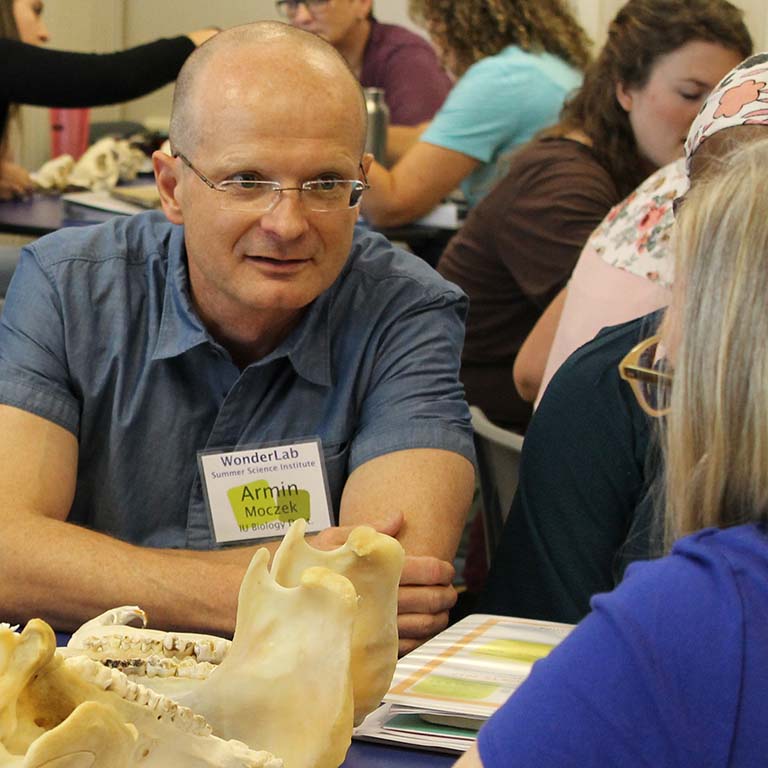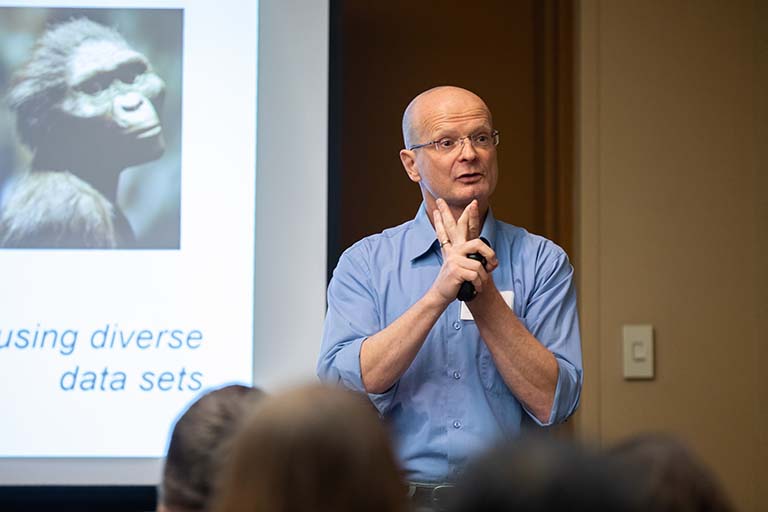The science outreach efforts of Armin Moczek, a professor in the IU College of Arts and Sciences Department of Biology in Bloomington, will be honored this week at the 2022 National Association of Biology Teachers Professional Development Conference in Indianapolis.
Moczek will receive the organization's Evolution Education Award for his innovative teaching and community education efforts in the promotion of the accurate understanding of biological evolution.
Moczek's goal is to develop and help disseminate teaching modules that bring to life biology—and to do so in ways that support Indiana’s Academic Standards for Science. He presented his first workshop in 2006 to about 20 local teachers at WonderLab Museum of Science, Health, and Technology in Bloomington. He has since developed a dozen modules and presented 22 workshops to over 500 educators. Although the content areas vary, all modules use eye-catching or otherwise captivating materials—from live insects to real mammal skulls to casts of fossil hominids—to draw students in, engage them hands-on, and make them active co-investigators. In addition to teaching students within the community and training teachers in module implementation in the classroom, Moczek presents modified versions of select modules at diverse venues—from retirement homes to local science fairs.
Moczek collaborates with Dr. Kirstin Milks, a science teacher at Bloomington High School South who currently teaches AP Biology and Earth and Space science. Milks will also be honored at this year's NABT conference with the group's Ecology and Environmental Science Teaching Award for developing and demonstrating an innovative teaching approach in ecology and environmental science and for carrying her commitment to the environment into the community.
During the conference, Moczek and Milks will present a workshop on human evolution to conference attendees. The module uses seven different data sets—from fossils to artifacts and diet to climate data—to put students in a position to reconstruct in considerable detail the last 6 million years of human evolution, when and where key events occurred, and the circumstances under which key phases of human evolution unfolded. Just as much, the module focuses on the methods used by scientists to probe the past as well as the power and limits of these methods. It opens questions in our understanding of human evolution that await being fully answered. During the workshop, teachers will mostly participate as students but will sometimes step out of that role and discuss best practices in how to teach the unit.


 The College of Arts
The College of Arts